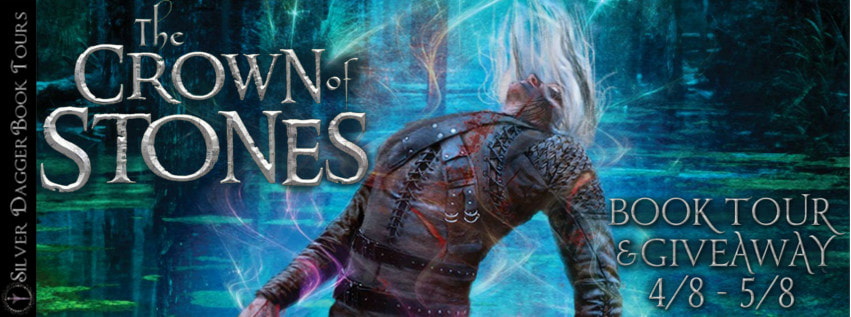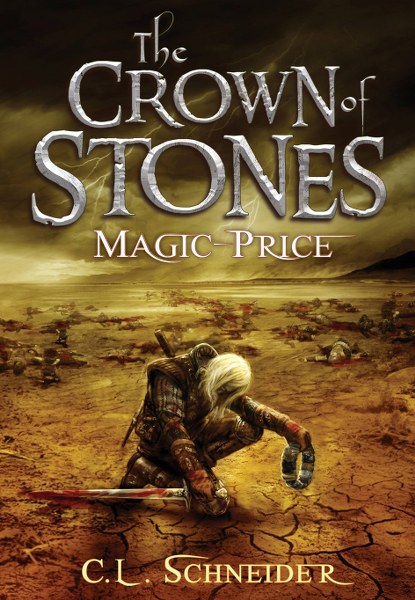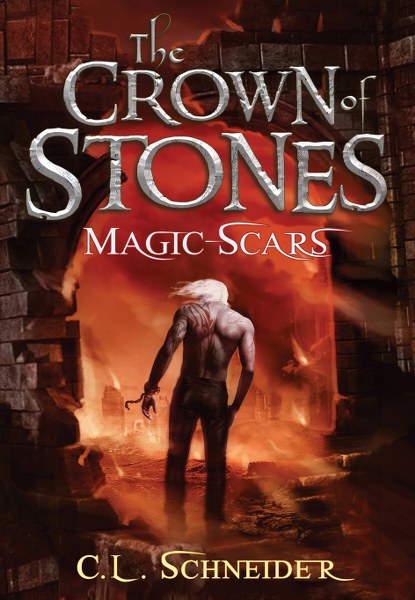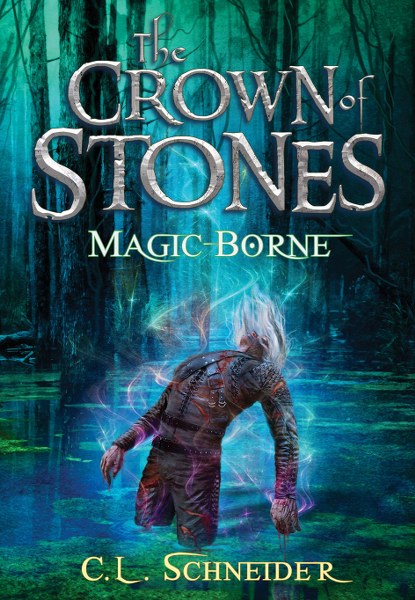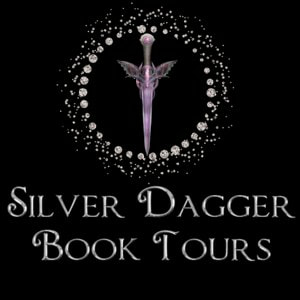I've decided to shut down my blog. On average, about 10-15 people read my posts. While I am deeply grateful for those loyal followers, it's just not worth the effort to maintain this blog.
My blog's archive will remain online. However, to receive updates on my books and Skyrocket Press, please subscribe to my newsletter. Thank you.
https://www.subscribepage.com/skyrocketpresshttps://www.subscribepage.com/skyrocketpress
Friday, May 31, 2019
Wednesday, May 29, 2019
WRITER 2 WRITER: THE PROS AND CONS OF SELF-PUBLISHING
SUCCESSFUL SELF-PUBLISHING, PART II
So, you’re considering self-publishing your book but are still not sure if it’s the right choice for you. Let me assure you that it is wise to take a step back and carefully look at your options before jumping right in.
In today’s 2nd part of my Successful Self-Publishing series, I will share the pros and cons of going the indie route. (Read part 1 of my series, “Should I Self-Publish?” HERE.) Let’s start with the cons:
THE CONS OF SELF-PUBLISHING
1. MONEY – If you think you can publish a top-quality book for nothing, you’re in the wrong business. Sure, you can crank out a poorly edited, badly designed product with a crappy cover and hang an Amazon “For Sale” sign on it if you want. But don’t expect anyone but your mother to buy it.
Let’s be honest here. Most of us write books because we want people to read them. And to accomplish that, people need to buy them. In the world of traditional publishing, producing and marketing a book can take tens of thousands of dollars. While self-publishing shouldn’t cost nearly that much, it does cost. Cover art, line editing, proofreading, design, formatting, and marketing all require money to do it right. And that money has to come out of your pocket.
2. MARKETING – When it comes to marketing, traditional publishers have a whole slew of resources at their fingertips. They have networks and budgets in place to acquire reviews, pay for advertising, and schedule book tours. Indie authors must handle all of this alone. Too often, authors think that they can effectively sell their books just by posting about them on Facebook or other social media.
The truth is, if you want to sell books, you need reviews and advertising, too. You need to establish a fan base and connect with them in a meaningful way. You need to set up blog tours as well as go to events to sell books in person. Again, as the author, this is all your responsibility, which takes a lot of time and money. And there are still no guarantees your book will sell.
3. COMPETITION – Hugh Howey, E.L. James, and Amanda Hocking have made millions! So what? Listen, folks, mega-hits like Wool and Fifty Shades of Gray are the exception, not the rule, for self-publishing. According to a 2016 New York Times article, only about 40 self-published authors currently “make money” (meaning they’ve sold over a million copies and are hugely successful). The rest of the hundreds of thousands of SP titles out there are lucky if they sell a dozen copies a year.
In other words, your book will be a very tiny drop in a vast ocean . And since there are a limited number of book buyers out there, your share in the market isn’t likely to be very big. Does that mean your book doesn’t stand a chance? Of course not. But going into this business without being completely aware of what you’re up against is a bad idea.
Okay. Now that I’ve totally burst your bubble, let me share with you some good reasons to self-publish DESPITE the negatives I just listed above.
THE PROS OF SELF-PUBLISHING
1. CONTROL – It’s a joke in the traditional publishing industry, just how long the publishing process takes (two years on average for a novel.) Also, once that manuscript is out of the author’s hands, he/she has little say in what happens next. Editing, cover design, marketing, even the price of the book are all decisions made by someone else. Self-publishing allows you to control the project through every step along the way. Not only can you publish in a matter of months instead of years, you can also make sure the end result matches your vision and not someone else’s.
2. INCOME – While most traditionally published authors earn less than a buck off every book sold (While the really successful ones might get hefty advances, most do not.), self-published authors can set their own prices and make a larger percentage off every sale. This means that although you might sell fewer books, you can still make a decent profit.
3. POTENTIAL – While stats show that the vast majority of self-published books earn less than $100, there are ways to greatly improve your odds (which I’ll discuss in next week’s article). The potential for success is definitely present, and there are plenty of examples of authors who, while not earning multi-millions like E.L. James, are making a respectable living with their books. If you do self-publishing right, you can too.
4. SATISFACTION – There is nothing quite as satisfying as holding a printed copy of your masterpiece in your hand. Knowing that you not only wrote that baby, but you helped it become the book it is today is immensely fulfilling. Even more rewarding is seeing those four and five star reviews come in, as well as the ticks of the sales in your online reports. But best of all is when people who have read your book tell you how it made a difference for them, how it touched their hearts and changed them for the better. Nothing beats creating a book that has that kind of transformative power.
I’ve laid out the honest truth here, why you should or maybe shouldn’t self-publish. The final decision rests with you. If you decide to take the plunge into self-publishing, however, make sure you give your book the best chance possible to succeed. To find out how to do that, be sure to read next week’s installment in my Successful Self-Publishing series: “Keys to Successful Self-Publishing”.
Wednesday, May 22, 2019
WRITER 2 WRITER: TEACHING THE RULES OF WRITING TO KIDS
KIDS WRITE, PART VII
“There must be deviations from the rules in order to express almost anything….However, only the man who is familiar with the rules may sometimes violate them, for he alone can know that, in certain cases, the rule is not enough.” – Andre Ernest Modeste Gretry
When I first began to teach writing classes, I went into the job with the assumption that my students already understood the basic rules of grammar and punctuation, and for the most part my assumption was correct. However, the most disconcerting discovery I made was that such an assumption could not be made about every child.
Mary* was fourteen years old and what I would call a bookworm. She was an eager learner and highly intelligent. On the last day of my fiction writing course that year, each of my students were to bring a typed copy of their short story to share with the class.
Mary did not want to read her story out loud, so I volunteered to read it for her. When she handed me her story, however, I was flabbergasted to find not one single use of punctuation on the entire page. There wasn’t a period, comma, or quotation mark in sight. Not only that, but not a single letter was capitalized, every fifth word was misspelled, and the story had been written in one very long block of text. No paragraphs. I did my best to read it, but I struggled to know where to begin and end each sentence.
My class was not a grammar class. I was teaching the craft of fiction writing and expected the kids to learn the basic tools of writing at home. In this case, however, that had obviously not occurred.
When I had the chance, I pulled Mary aside and complimented her on her creative story. She had a knack for humor and character development.
“But,” I told her as gently as I possibly could, “there is no punctuation on the entire page.”
“Oh, I don’t need punctuation,” was her confident reply.
The truth is I am still stunned that anyone could honestly believe they don’t need to use punctuation when they write. I don’t know if her mother had told her that or if she had come to that conclusion on her own, but she was wrong, and I told her so.
Mary’s case was a bit extreme. The vast majority of students who have received any kind of writing instruction, whether at home or in a classroom, will have learned the value of punctuation, proper grammar, and spelling. But parents and teachers should not be lulled into the same easy assumption as I was and allow your child/student to get as far as high school without even being able to put a period in the right place.
Society often tells us, though flippantly, that rules are made to be broken. Writers and poets in particular are notorious for breaking rules.
In his Pulitzer Prize-winning memoir Angela’s Ashes, author Frank McCourt avoids quotation marks like the plague. Ernest Hemingway’s original works were littered with misspelled words. William Faulkner was notorious for his run-on sentences.
This bending and breaking of the rules in contemporary literature may give young writers the impression that the rules are irrelevant when compared to the creative process of writing. This could not be further from the truth. The rules of writing should not be broken, must not be broken, until they are first mastered. If Frank McCourt had written a quotation mark-free story for his college professor, he probably would have received a poor grade indeed.
Mary’s comment that she did not need to use punctuation is to writing like saying we do not need to obey traffic signals is to driving a vehicle. If we fail to stop at a red light, for example, cars will crash into each other, causing a lot of chaos and damage. The same thing happens to language without the proper use of punctuation and grammar.
In Mary’s case, my opportunities to assist her were limited. However, I did manage to teach her a few simple self-checks to help her get her writing under control. Look for these self-checks in next week’s article.
* Name changed for privacy.
Wednesday, May 15, 2019
WRITER 2 WRITER: STORYMAKERS AND POLITICS
This past weekend I attended the STORYMAKERS WRITERS CONFERENCE in Provo, Utah. I believe this was my 5th visit with this particular conference, and I have to say it was my favorite so far.
First, my daughter Carissa attended with me (she came last year too). She and I not only did conference stuff, but we also hung out with my son Stuart who is attending college nearby, visited with my cousins who I hadn't seen in a long time, saw a play together, and tried several yummy restaurants.
Second, my sister also flew in from Seattle, and we spent plenty of time with her.
Third, the food and classes were excellent! Carissa rightfully stated that the overall quality of this year's conference was much better than last year. We even got a really cool, nice quality business bag instead of the usual tote.
Over the past decade or so, I've attended about thirty different conferences and retreats. Most have been via the SCBWI (Society of Children's Books Writers and Illustrators), some with Storymakers, and others with a variety of different organizations. I've enjoyed them all, but what I love most about Storymakers is the feeling of comradarie and acceptance among the hundreds of attendees. Most of us are members of The Church of Jesus Christ of Latter-day Saints, so we are connected by our faith and values. But other than offering prayers over our meals, you won't hear much spoken about religion or politics or social ideas at Storymakers. It's all about writing.
And that's the way it should be. Despite our common religious backgrounds, there were all kinds of men and women there: blue and purple hair, women with babies, all levels of education, some with band t-shirts and others in dresses, a diversity of personalities and tastes and cultures. Everyone was welcome and accepted.
In recent years, I stopped attending SCBWI events because they became too political. Speakers began inserting their personal political agendas into their presentations, forgetting that children's books writers come from all walks of life. As a politically conservative woman, I increasingly felt that I was not welcome in SCBWI anymore. The organization itself was never meant to be political, but with so many high ranking members and speakers being liberal and becoming so vocal about it, I just stopped feeling like part of the tribe.
Storymakers, on the other hand, has never vocalized politics. By the very nature of the fact that most members are LDS and Christian, most of us are probably conservative too, though not everyone is. But the cool thing is... WHO CARES! At this year's conference, politics were checked at the door, allowing everyone to feel like part of a vast, wonderful family of writers.
Thank you to Storymakers for being so inclusive and making it all about what really counts: WRITING.
Wednesday, May 8, 2019
WRITER 2 WRITER: A WRITER'S JOURNEY
As an author, one of the most common questions I am asked is “How long have you been writing?” My answer is usually something like, “My whole life,” but that’s not really what people want to know. They want to hear about my journey, how I became a published author.
I have fifteen published books under my belt. The first was published in 2012, but that wasn’t the beginning. I wrote my first book in 2006. Couldn’t find a publisher. Wrote my second book in 2007, which took a couple years to revise and polish. I started submitting it to publishers in 2008. Two years later, I signed my first publishing contract. Nearly two years after that, the book [The Rock of Ivanore, Tanglewood Press] finally came out in 2012.
During the interim years, I kept writing. Book #2 [The Last Enchanter, Tanglewood Press] came out in 2013 with another in 2014 with a different publisher. Then things started going south. My first publisher went on hiatus and announced they were not going to publish the third book in my series. The second publisher just sort of vanished. Fortunately, a third publisher picked up my now orphaned book and republished it [Contact, Evernight Teen]. But I was still stuck with a series installment with no publisher. That’s when my journey changed direction.
Around this time, a friend of mine lost her husband to a sudden illness. She is an amazing sci-fi author but had never published anything, so I founded Skyrocket Press and published her short story collection [Martian Goods, Noelle Campbell]. Since then I’ve published many of my own books and other authors’ books via Skyrocket Press.
Our newest title, The Word and the Struggle by Raymond A. White, is a collection of essays about the Old Testament. I am currently in the process of publishing books three thru six of my fantasy series The Crystal Keeper, which I hope will be out soon.
So that’s it in a nutshell, my author’s journey. Very condensed, I know, but the next time you read a good book, remember that the journey the author followed to get that book into your hands was often a long and difficult one. But I can guarantee that for all of us, it’s been one helluva ride!
Join Skyrocket Press’s mailing list and get a FREE book here:
https://mailchi.mp.7861dc13bbef/skyrocketpressnews
Monday, May 6, 2019
TAKING A BREAK
I'm taking a much needed break from blogging and my newsletters for a few weeks. I'll be back around June 1st if not sooner. Thanks.
Thursday, May 2, 2019
$10 GIVEAWAY - THE CROWN OF STONES by C.L. Schneider
Magic-Price
The
Crown of Stones Book 1
by
C.L. Schneider
Genre:
Epic Fantasy
Ian
Troy is one of the Shinree, a fallen people with an inherent
addiction to magic. Scorned and reviled for the deadly side of their
spells, the Shinree are bred as slaves. Their magic is suppressed by
drugs and used only as it serves the purposes of the other
races.
Descended
from a long line of soldiers, Ian is conscripted into the Rellan army
and made to fight in their longstanding conflict against the ruthless
Langorian invaders. The downfall of Rella imminent, Ian goes against
orders and turns to the Crown of Stones, an ancient Shinree relic of
untold power. Ignorant of its true purpose, Ian uses the crown to end
the war, and pays a terrible price.
A
decade later, still tortured by the aftermath of that day, Ian lives
as a bounty hunter in self-imposed exile. Having renounced his
magical heritage, he curbs his obsession with a steady stream of wine
and regret. He struggles to put it all behind him, until a fateful
encounter with a pretty assassin brings Ian’s past crashing into
the present.
Targeted
by a rogue Shinree, and a ruthless old enemy, Ian is forced to use
magic again. His deadly addiction is rekindled and his life of
isolation is brought to a swift end. With the land he gave up
everything to protect once more in jeopardy, and his people’s
future at stake, Ian becomes embroiled in a violent race for control
of the Crown of Stones. To save the realms and those he cares for,
Ian must embrace the thing he fears most: his own power.
Magic-Scars
The
Crown of Stones Book 2
Magic
doesn’t wound the same as a sword.
The
story of Ian Troy continues in Magic-Scars, the second installment in
C. L. Schneider’s riveting epic fantasy trilogy, The Crown of
Stones.
Captured
by his old enemy, King Draken of Langor, Shinree magic user Ian Troy
was sentenced to prison. Tortured and drugged, robbed of his will,
his memories, and his magic, Ian was made to do unspeakable things.
Rescued, as his body slowly rids itself of the drug, Ian realizes he
has returned to an unfamiliar world gripped with fear. In the wake of
his fall, those he cared for were left to their own grim fates.
Draken has seized control of the realms and named himself High King.
His brutal rein has sparked a desperate rebellion that Ian now finds
himself a part of. His one task: recover and repair the Crown of
Stones, in hopes it will tip the balance in the revolution that is
brewing. In pursuit of the reason behind the artifact’s strange
loss of magic, Ian is driven to release an explosion of retribution
and power that leaves him irrevocably scarred.
Struggling
to reconcile the man he has become with the man he once was, Ian
strives to understand the growing number of magic-scars adorning his
body. He searches for the truth behind his link to the Crown of
Stones and uncovers shocking secrets buried for generations beneath
the sand. To become the weapon the resistance needs, he must assume
responsibility for his magical inheritance. But can he curb the
destructive appetite that comes with it?
The
price of Ian’s magic and his addiction have never been higher.
Magic-Borne
The
Crown of Stones Book 3
No
other Shinree has borne as much of magic's weight, its pleasure, or
its guilt.
The
fate of Ian Troy is revealed in the final installment of C. L.
Schneider's epic fantasy trilogy, The Crown of Stones.
In
one fell swoop, the resistance was shattered. Lives were taken. Hope
was lost. Peace slipped like grains of sand through his fingers. So
did the Crown of Stones. Now, forced into hiding, Ian Troy grapples
for a way to save the realm—and free its people—from the sadistic
clutches of Jem Reth; Mirra’kelan’s new self-appointed emperor.
Plagued with the knowledge of a tragic future, he strives to
influence events and save those he cares for. But his magic has
betrayed him, and Fate has other plans.
Marked
by the crown, hindered by the transformation spell contained within,
each cast brings Ian one step closer to becoming more beast than man.
Each move brings the death and destruction foretold in his vision
inexplicably nearer. With Langor on the brink of war, and King
Malaq’s plan for peace hanging in the balance, Ian returns to the
ancient past; seeking an end to the eldring spell and a means to
thwart Jem’s growing domination. What he finds there sets off a
chain of revelations that leads Ian places he never thought to
go.
Entrusted
with the future of his race, Ian becomes the linchpin for lasting
change. But how much weight can one man carry? And how much is he
willing to sacrifice in the name of peace?
Born
in a small Kansas town on the Missouri river, C.L. Schneider grew up
in a house of avid readers and overflowing bookshelves. Her first
full-length novel took shape while she was still in high school, on a
typewriter in her parent's living room. While her main focus is adult
epic and urban fantasy, she also pens the occasional science fiction
or post-apocalyptic story.
Though
she has been writing all of her life, Magic-Price (the first
installment in The Crown of Stones Trilogy) was Schneider's first
published novel. With the trilogy complete, she is excited to be
embarking on a new path with her urban fantasy series, Nite
Fire.
Learn
more about C.L. Schneider and her work at clschneiderauthor.com,
where you can read reviews, excerpts, sneak peeks and teasers,
subscribe to her newsletter, and join her Street Team. Look for book
reviews and guest posts, and follow her journey as an indie author,
on her blog, "Heading Down The Yellow Brick Road". An
active part of the online indie author community, you can connect
with C.L. Schneider on Twitter, Facebook, Goodreads, and Google+,
where she chats about books, zombies, coffee, and the wonderful
roller coaster of a writer's life.
Follow
the tour HERE
for exclusive content and a giveaway!
Subscribe to:
Comments (Atom)






